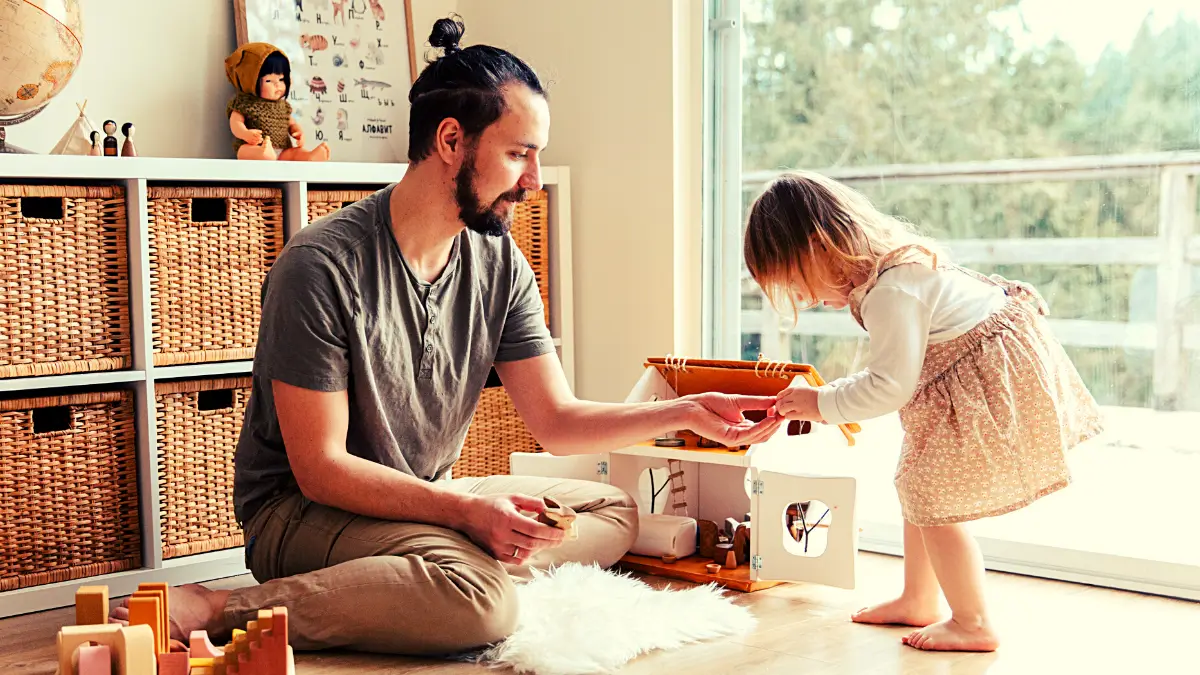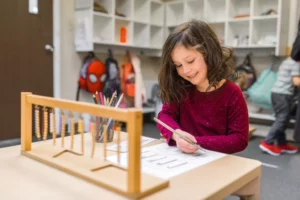The Montessori Philosophy stands as a unique beacon in the world of child-centered education. Conceptualized by Dr. Maria Montessori, this method hinges on cultivating the child’s inherent curiosity, promoting independence, and encouraging a lifelong love for learning. As parents, embracing this philosophy can profoundly impact your child’s development and overall growth.
The Underpinnings of the Montessori Method
At the heart of the Montessori method lies the understanding that children have a natural tendency to learn. They are innately curious, explorative, and willing to engage with the world around them. Montessori education harnesses this inquisitiveness, providing an environment rich with opportunities for self-directed learning.
Practical Life Skills: The Bedrock of Montessori Education
In the Montessori classroom, daily life activities or ‘Practical Life’ exercises play an integral role. Children are guided to participate in tasks like cooking, cleaning, and gardening, fostering practical skills, independence, and respect for their environment.
Sensory Materials: Engaging All Five Senses
Montessori education is distinctive for its hands-on approach to learning. Specially designed sensory materials help children engage with abstract concepts tangibly, promoting comprehensive understanding and enhancing sensory perception.
The Role of a Montessori Educator
Unlike traditional teaching methods, the Montessori educator acts as a guide rather than an instructor. They facilitate learning, providing resources, and opportunities for children to explore their interests, fostering an environment of respect, independence, and self-discipline.
Inculcating the Montessori Philosophy at Home
Embracing Montessori extends beyond the school and into the home. Here are some ways to incorporate the Montessori philosophy into your everyday lives:
- Create a Prepared Environment: Organize your home to encourage exploration and independence. Provide child-sized furniture, low shelves with accessible materials, and tasks that they can complete independently.
- Foster Autonomy: Encourage your child to participate in daily tasks like setting the table, watering plants, or tidying their room. This boosts self-confidence and practical life skills.
- Respect their Pace: Allow your child to learn and explore at their own pace. Respect their focus and avoid interrupting their concentrated work.
Conclusion: Why Embrace the Montessori Philosophy?
The Montessori philosophy isn’t just a method of education; it’s a way of viewing and respecting the world of the child. Embracing this philosophy as parents can foster a nurturing environment that prioritizes respect, independence, and a love for learning. In doing so, we provide a strong foundation for our children to become confident, compassionate, and well-rounded individuals.










